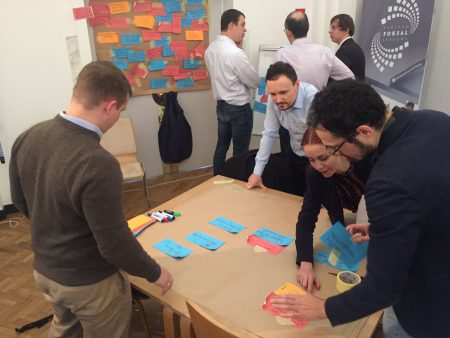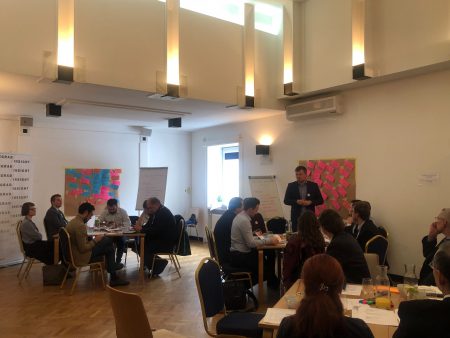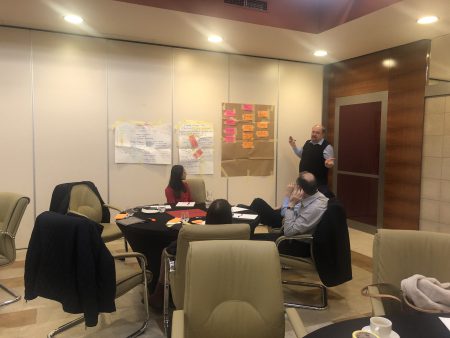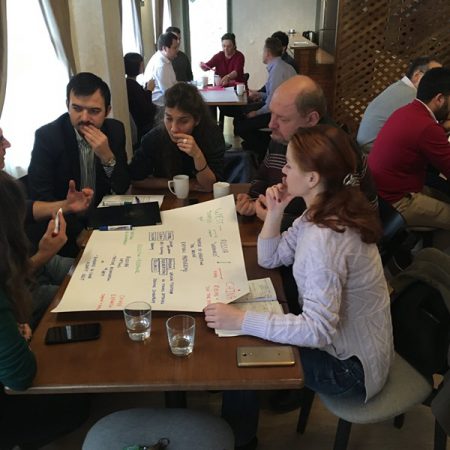The future of the Eastern Partnership (EaP), after 10 years of existence, is a top subject not only on the political agenda of the European Union (EU) and the EaP countries (Armenia, Azerbaijan, Belarus, Georgia, Moldova and Ukraine), but also for representatives of civil society and think tanks, taking into account the new political realities at regional and international level.
In this context, experts from Visegrad / Insight launched the project “Central European Futures: scenarios for the Eastern Partnership in 2030”, aims to bring together within a strategic workshops, experts from Visegrad countries (V4) and EaP countries in order to build possible scenarios and options for the development of the Eastern Partnership after 2020 based on the EU political uncertainties regarding to this format of deep cooperation with the countries from its eastern neighborhood.
The purpose of this ambitious project is to present those scenarios developed during the workshops aiming to make aware the EU and the EP countries of the possible effects and consequences of the elaborated policies or its’ lack. The disseminated knowledge on the EaP’s strategic development options, EU policy toward this initiative and the V4 contribution in the EaP countries, will also play an important role contributing to a better level of public debate and decision-making.


Therefore, three workshops were organized in Warsaw (October 23-25), Tbilisi (November 13-15) and Prague (November 27-29), attended by Natalia Stercul, program director, Eastern studies department, and Ludmila Nofit, interim executive director.

The participants had the mission to analyze different political, economic and social factors, etc., which could subsequently have effects on the future Eastern Partnership, but also on the policies developed by the EU in relation to the EaP countries. In context, the experts developed possible scenarios for the Eastern Partnership, drafting a series of recommendations to prevent or reduce the negative effects generated by one or the other scenario.
Worth to be mentioned that the final version of the material developed will be published and presented in spring 2020.
The project is supported by the Visegrad Fund.







